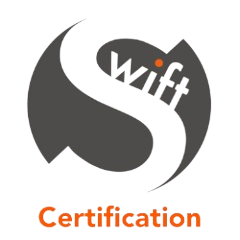In today’s fast-evolving business landscape, environmental responsibility is no longer a niche concern or a tick-box exercise – it’s an imperative shaping how organisations operate, compete, and thrive. From global climate targets to local legislation, the pressure from customers, regulators, and supply chain partners to demonstrate robust environmental credentials has never been greater. Against this backdrop, ISO 14001 certification stands out as the internationally recognised standard for Environmental Management Systems (EMS), empowering businesses to meet and exceed stakeholder expectations, control risks, and seize new market opportunities.
ISO 14001: More Than Just Compliance – A Strategic Imperative
Many small businesses mistakenly believe that their environmental impact is negligible or irrelevant to the ISO 14001 standard. In truth, every organisation influences its environment – through energy use, waste generation, procurement, or transport. ISO 14001 isn’t exclusive to “big polluters”; it offers tangible value to SMEs as well as large enterprises, making compliance manageable and beneficial through flexible implementation options. Recent updates, such as ISO 14005, enable SMEs to approach certification in affordable, phased steps, reaping rewards from their very first improvements.
ISO 14001 places environmental performance at the heart of business strategy, not just compliance. By identifying your key impacts and embedding continual improvement, you unlock greater efficiency, resilience, and competitiveness. You’re not just keeping regulators happy – you’re futureproofing your operations and aligning with the global sustainability movement.
Boosting Your Brand: The Reputational Power of Green Certifications
Environmental certification is no longer just an operational decision – it’s a powerful brand signal. In a market where buyers and investors increasingly make choices based on sustainability credentials, ISO 14001 and carbon certification distinguish your business as a credible, forward-thinking player. Research consistently shows enhanced consumer trust and a greater ability to win high-value contracts for businesses that can prove their environmental credentials.
By leveraging environmental performance certification and transparent carbon emissions reporting, organisations demonstrate genuine commitment to climate action – not just greenwashing. This builds long-term reputation and opens doors with ethically-minded consumers and major buyers alike.
Employee pride and engagement also climb when a business demonstrates meaningful environmental action; younger generations, especially, are motivated by purpose-driven employers. In a crowded marketplace, the reputational benefits of ISO 14001 can open doors to growth, partnership, and distinction.
Impacting Your Bottom Line: Financial Gains from Sustainable Practices
The financial impact of ISO 14001 is compelling and measurable. By optimising resource use – reducing energy consumption, waste management costs, and raw material requirements – businesses routinely see substantial cost savings. Efficient environmental management can also lower insurance premiums, minimise regulatory fines, and improve operational stability.
Access to new markets and customers is another substantial ROI driver. Increasingly, contracts stipulate ISO 14001 certification as a prerequisite, expanding business opportunities and strengthening revenue streams. Proactive risk management through ISO 14001 further safeguards financial health by anticipating and controlling environmental liabilities.
Navigating the Future: Circular Economy and Climate Change Integration
ISO 14001 is not static; it evolves alongside global sustainability imperatives. Forward-looking organisations use their EMS to embrace circular economy principles—designing products for reuse, recycling, or lower-impact lifecycles. Concepts like biodiversity protection, climate risk adaptation, and deeper supply chain engagement are rapidly integrating into the standard’s future direction.
For small businesses and enterprises alike, preparing for imminent regulatory changes and market trends with ISO 14001 provides a buffer and a springboard. Anticipating tomorrow’s demands – be they net zero commitments or new product stewardship regulations – ensures your brand remains relevant and resilient.
Implementing ISO 14001: A Practical Approach
Getting certified does not require excessive cost or disruption. Begin with a gap analysis to assess your current environmental practices, followed by strategic planning and staff engagement. ISO 14001’s flexibility enables phased adoption, starting with the most meaningful projects (such as energy savings or waste minimisation) and building out your EMS in manageable steps.
Use internal audits and performance metrics to embed continual improvement and monitor success. Expert guidance – from experienced consultants or pragmatic tools – can accelerate your progress and simplify compliance, turning complex requirements into actionable solutions for your business.
Conclusion: Your Path to a Sustainable and Profitable Future
Investing in ISO 14001 certification and environmental performance services is an investment in your organisation’s future – operationally, financially, and reputationally. Whether you’re just starting out or ready to lead your sector on climate strategy, integrating robust environmental management brings tangible benefits in market access, stakeholder trust, and long-term growth. Make sustainability your differentiator and let your brand shine greener and stronger than ever.
Start today:
- Request a consultation on integrating environmental management and carbon reporting into your operations.
- Explore our certification and reporting services to unlock your green advantage.



